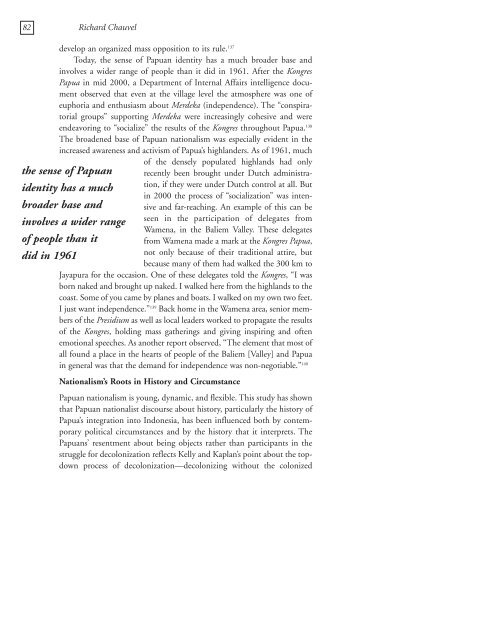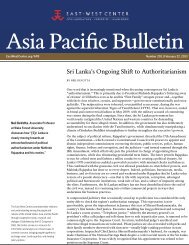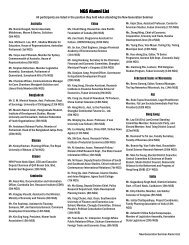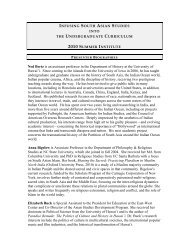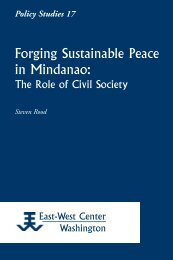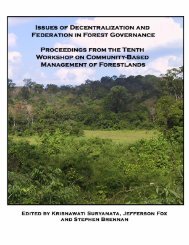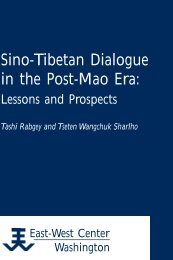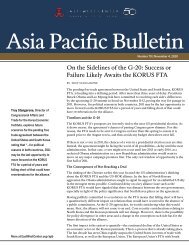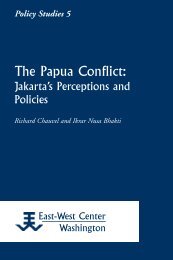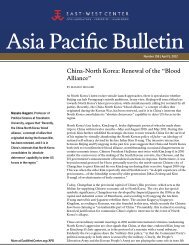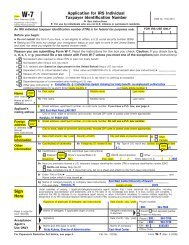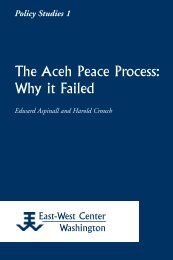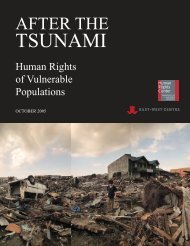Constructing Papuan Nationalism: History, Ethnicity ... - ScholarSpace
Constructing Papuan Nationalism: History, Ethnicity ... - ScholarSpace
Constructing Papuan Nationalism: History, Ethnicity ... - ScholarSpace
- No tags were found...
You also want an ePaper? Increase the reach of your titles
YUMPU automatically turns print PDFs into web optimized ePapers that Google loves.
82 Richard Chauveldevelop an organized mass opposition to its rule. 137Today, the sense of <strong>Papuan</strong> identity has a much broader base andinvolves a wider range of people than it did in 1961. After the KongresPapua in mid 2000, a Department of Internal Affairs intelligence documentobserved that even at the village level the atmosphere was one ofeuphoria and enthusiasm about Merdeka (independence). The “conspiratorialgroups” supporting Merdeka were increasingly cohesive and wereendeavoring to “socialize” the results of the Kongres throughout Papua. 138The broadened base of <strong>Papuan</strong> nationalism was especially evident in theincreased awareness and activism of Papua’s highlanders. As of 1961, muchof the densely populated highlands had onlyrecently been brought under Dutch administration,if they were under Dutch control at all. Butin 2000 the process of “socialization” was intensiveand far-reaching. An example of this can beseen in the participation of delegates fromWamena, in the Baliem Valley. These delegatesfrom Wamena made a mark at the Kongres Papua,not only because of their traditional attire, butbecause many of them had walked the 300 km toJayapura for the occasion. One of these delegates told the Kongres, “I wasborn naked and brought up naked. I walked here from the highlands to thecoast. Some of you came by planes and boats. I walked on my own two feet.I just want independence.” 139 Back home in the Wamena area, senior membersof the Presidium as well as local leaders worked to propagate the resultsof the Kongres, holding mass gatherings and giving inspiring and oftenemotional speeches. As another report observed, “The element that most ofall found a place in the hearts of people of the Baliem [Valley] and Papuain general was that the demand for independence was non-negotiable.” 140the sense of <strong>Papuan</strong>identity has a muchbroader base andinvolves a wider rangeof people than itdid in 1961<strong>Nationalism</strong>’s Roots in <strong>History</strong> and Circumstance<strong>Papuan</strong> nationalism is young, dynamic, and flexible. This study has shownthat <strong>Papuan</strong> nationalist discourse about history, particularly the history ofPapua’s integration into Indonesia, has been influenced both by contemporarypolitical circumstances and by the history that it interprets. The<strong>Papuan</strong>s’ resentment about being objects rather than participants in thestruggle for decolonization reflects Kelly and Kaplan’s point about the topdownprocess of decolonization—decolonizing without the colonized


